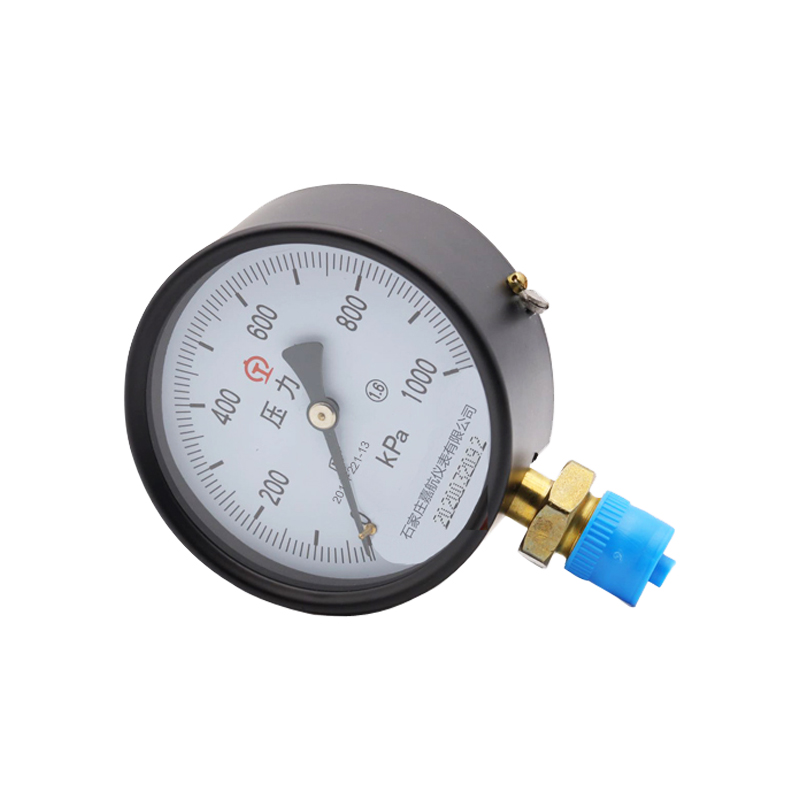
Sep . 10, 2024 08:28 Back to list
Differential Pressure Gauge in Pharma Industry | Precision Measurement Solutions
The Importance of Differential Pressure Gauges in the Pharmaceutical Industry
In the pharmaceutical industry, maintaining stringent standards of cleanliness, sterility, and contamination control is critical for producing safe and effective products. One essential instrument that aids in achieving these standards is the differential pressure gauge. These gauges measure the difference in pressure between two points in a system, providing invaluable data that impacts various processes.
Understanding Differential Pressure Measurement
A differential pressure gauge works by comparing the pressure of a fluid or gas at two different locations. This measurement allows manufacturers to monitor conditions within various environments, such as cleanrooms, filter systems, and ventilation ducts. Understanding the pressure differential is crucial for optimizing processes and ensuring regulatory compliance in pharmaceutical manufacturing.
For example, differential pressure gauges are often employed in filter systems, where they indicate the filter's clogging status by measuring the pressure before and after the filter. When the differential pressure rises beyond a certain threshold, it signals that the filter needs to be cleaned or replaced to maintain optimal airflow and compliance with cleanliness standards.
Ensuring Sterility and Cleanliness
In cleanroom environments, the integrity of air flow is paramount. Differential pressure gauges help maintain the necessary pressure differentials between cleanrooms and adjacent areas. By ensuring that the cleanroom remains at a higher pressure than the outside environment, these gauges prevent contaminated air from infiltrating sterile spaces. This is particularly vital during the manufacture of injectable drugs, where even minute contamination can lead to severe health risks for patients.
differential pressure gauge in pharma industry quotes

Moreover, in drug formulation and packaging processes, the differential pressure helps monitor and control the airflow, humidity, and temperature within production areas. Consistent monitoring ensures that deviations from specified conditions are promptly detected and corrected—crucial for complying with regulatory standards imposed by agencies such as the FDA and EMA.
Regulatory Compliance and Quality Assurance
Regulatory bodies mandate that pharmaceutical companies adhere to strict quality and safety standards. The use of differential pressure gauges plays a significant role in compliance efforts. By providing real-time data on pressure differentials, these instruments assist in maintaining operational standards and ensuring that processes are performed under controlled conditions.
Furthermore, the recorded data may be used for validation purposes during audits, demonstrating that the company meets or exceeds required specifications. This data trail is essential not only for internal quality assurance but also for external audits and inspections.
Conclusion
In conclusion, differential pressure gauges are indispensable tools in the pharmaceutical industry, contributing to the maintenance of sterility, quality, and regulatory compliance. Their ability to monitor and control pressure differences plays a crucial role in ensuring safe and effective pharmaceutical products. As the pharmaceutical landscape continues to evolve, the reliance on precise and reliable measurement instruments like differential pressure gauges will only increase. By investing in these technologies, companies can enhance their operational efficiencies, uphold safety standards, and ultimately improve patient outcomes.
-
High-Precision Mass Diaphragm Pressure Gauge - Reliable & Durable Solutions
NewsJun.10,2025
-
Explain Diaphragm Pressure Gauge Expert Guide, Top Manufacturers & Quotes
NewsJun.10,2025
-
Affordable Differential Pressure Gauge Prices in China Top Manufacturers
NewsJun.10,2025
-
Reliable Water Fire Extinguisher Pressure Gauges for Safety
NewsJun.10,2025
-
Durable Diaphragm Protection Pressure Gauges Get Quote
NewsJun.09,2025
-
WIKA Differential Pressure Gauge with Switch Reliable Monitoring & Control
NewsJun.09,2025
